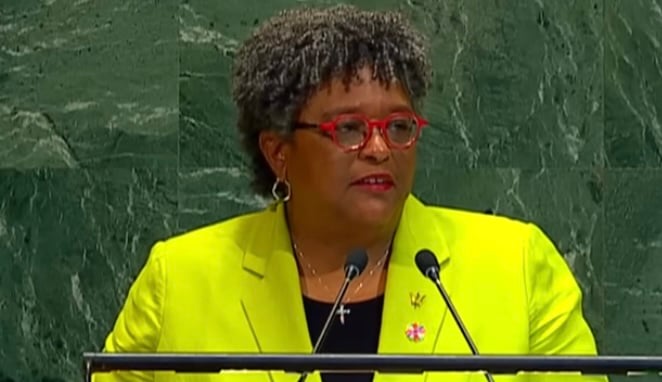Speaking at the Barbados Labour Party’s 86th annual conference in Bridgetown over the weekend, Mottley said the Caribbean is “facing a multiplicity of threats,” pointing to “menacing vessels, military vessels, from the United States across the Caribbean Sea, including what is reputed to be the world’s largest warship.” She argued that “conflicting law enforcement with military action is a dangerous step,” urged respect for the rule of law, and called for intelligence sharing “if there is other intelligence available that would cause you to take action that is an immediate threat.” She added that disputes should be handled via the United Nations and pressed for dialogue “to prevent the war from starting.”
Mottley’s comments come amid a visible U.S. show of force. On Sunday, the guided-missile destroyer USS Gravely docked in Port of Spain, Trinidad and Tobago, for joint activities — a port call that has heightened tensions with Venezuela as Washington ramps up pressure on President Nicolás Maduro.
Separately, the Pentagon has deployed the USS Gerald R. Ford carrier strike group to the region, a move the Trump administration says is aimed at counter-narcotics operations. Maduro has denounced the deployment as the U.S. “fabricating” a war near Venezuela.
The buildup follows a series of U.S. lethal strikes against suspected drug-trafficking vessels since early September, including multiple actions in the Caribbean and additional strikes in the eastern Pacific. Reporting over the past week tallied at least several such operations, with officials providing limited public evidence; legal scholars and some lawmakers have questioned the basis for using military force against alleged traffickers at sea.
Trinidad and Tobago officials framed the Gravely visit as training and cooperation, while Caracas labeled it a provocation. Regionally, Mottley stressed that no Caribbean nation should be subject to unilateral force by any third party.
CARICOM capitals are expected to weigh diplomatic steps as U.S. assets operate near Venezuela in the coming days. Mottley said almost every war “has been ended by dialogue” — and urged starting that dialogue now.


